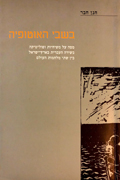
In 1928 Ezra Zusman published his poem “Tiberias in the Rain” in the Eretz-Israeli periodical “Echoes.” Its words have resonated with readers of Hebrew poetry for generations. The poem’s symbolic link between the figure of Jesus – a youth floating ‘high and holy’ – and the agricultural image of metaphorically sowing seeds and of rain as a moment of messianic epiphany are typical of the language of Eretz-Israeli poetry. Representing the Zionist act as one of holy redemption was at the center of a poetic and political contest within Hebrew poetry. On the one hand, there was a fascination with the utopian dimensions of reality, while on the other, there was concern that the longing for utopia might cause the Zionist national endeavor to risk false ideas of hurrying the arrival of the Messiah by violent means. Beyond this clear confrontation between the poetical and political factions, Hebrew poets united around their interest in establishing an exclusive national culture, rejecting, for example, its national “others,” the Arabs. What seems at first an arena of harsh confrontation over the issue of Messianism is revealed to be a veil obstructing a dialogue in which the opponents also collaborate.
Captives of Utopia follows the poetic dynamics that transformed the culture of Hebrew poetry into a confrontation field over the “messianic question,” beginning with “labor poetry” in the early 1920s and its efforts to construct the image of the pioneer, the victim and the herald, as a compromise that would neutralize messianism from politics. These efforts continued through the late 1930s, culminating in the intricate poetic dialogue between Uri Zvi Greenberg’s apocalyptic radical right-wing political expressionism, and Avraham Shlonsky’s and Nathan Alterman’s symbolistic school, subverted by its repressed messianic layers.